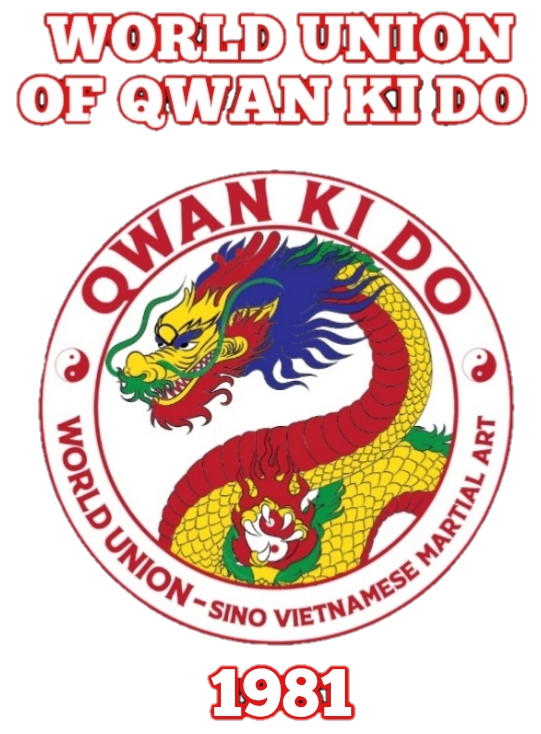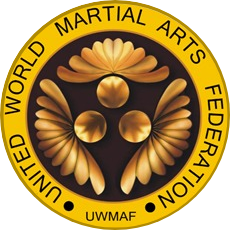QWAN KI DO / HISTORY / THE ORIGINS > THE BIRTH OF QWAN KI DO > FROM ITS FOUNDATION TO OUR DAYS > WUQKD-SVAM RE-FOUNDATION
THE DIFFERENT VOICES WITHIN THE QWAN KI DO AND THE RECENT REFUNDATION OF THE WORLD UNION OF QWAN KI DO
AND SINO-VIETNAMESE MARTIAL ARTS
In its history, Qwan Ki Do, while distinguishing itself from other martial arts for its marked homogeneity and unity, has nevertheless witnessed some episodes of dissent and division.
The first important episode occurred in 1995 with the split of Qwan Ki Do in France and the birth of a second school known as Chuong Quan Khi Dao.
Within the Qwan Ki Do of Master Pham Xuan Tong it was starting from 2010 that a group within the management perceived the need to reform the decision-making processes of the organization, which increasingly required participation and collective sharing of the objectives to be achieved .
Another important element that required urgent attention was that of the training support that the central structures were to provide to national organizations.
The lack of recognition of the reform demands began to produce deep divisions starting from 2015.
The divisions essentially focused on important aspects of financial and organizational management, such as a lack of reinvestment of financial profits towards a strategic development plan of the martial art through training initiatives, the increasing bureaucratic centralization of decision-making powers in the hands of a small group of people who made up the Founder Office, the persistent repression and suffocation of internal dialogue and the total centralization of martial knowledge and the managerial responsibilities connected to it in the hands of very few.
The reforming group renewed its attempts at change, always respecting the discipline and with the greatest discretion, remaining faithful to the principles of unity of the school and respect for the internal hierarchy.
However, the group was confronted with increasing resistance from some elements of the Founder Officer, who between 2017 and 2020, in response to substantial requests for change, instead replied with the gradual marginalization of dissidents carrying reform requests, replacing them with people whose most important qualifications proved to be proven loyalty to management dictates.
It was in the spring of 2020 that a group of international leaders under the guidance of Maestro Roberto Vismara, having acknowledged that the only response of the Founder Office to the reform requests was the bureaucratic centralization of power, abandoned the hopes of change from within and he made the painful and dramatic decision to separate and re-establish the World Union of Qwan Ki Do and Sino-Vietnamese Martial Arts.
CONCLUSION:
The traumatic experience of the last 10 years of Qwan Ki Do life has made clear a fundamental truth in the field of martial arts: the presence of one or more extraordinary martial artists in a school counts for little if it is not accompanied by leadership with a solid moral and organizational vision, capable of inspiring the collective body of practitioners; such leadership remains persistently dedicated to its educational and training goals, to enable all members of the organization to progress and successfully face the challenges of the future.
It is on these premises of fidelity to the vision of martial art understood as a complete path for the development of man and all members of the human community that the World Union of Qwan Ki Do and Sino-Vietnamese Martial Arts has re-founded its organization.
QWAN KI DO / HISTORY / THE ORIGINS > THE BIRTH OF QWAN KI DO > FROM ITS FOUNDATION TO OUR DAYS > WUQKD-SVAM RE-FOUNDATION
QWAN KI DO / WUQKD-SVAM RE-FOUNDATION
THE DIFFERENT VOICES WITHIN THE QWAN KI DO AND THE RECENT REFUNDATION OF THE
WORLD UNION OF QWAN KI DO
AND SINO-VIETNAMESE
MARTIAL ARTS
In its history, Qwan Ki Do, while distinguishing itself from other martial arts for its marked homogeneity and unity, has nevertheless witnessed some episodes of dissent and division.
The first important episode occurred in 1995 with the split of Qwan Ki Do in France and the birth of a second school known as Chuong Quan Khi Dao.
Within the Qwan Ki Do of Master Pham Xuan Tong it was starting from 2010 that a group within the management perceived the need to reform the decision-making processes of the organization, which increasingly required participation and collective sharing of the objectives to be achieved .
Another important element that required urgent attention was that of the training support that the central structures were to provide to national organizations.
The lack of recognition of the reform demands began to produce deep divisions starting from 2015.
The divisions essentially focused on important aspects of financial and organizational management, such as a lack of reinvestment of financial profits towards a strategic development plan of the martial art through training initiatives, the increasing bureaucratic centralization of decision-making powers in the hands of a small group of people who made up the Founder Office, the persistent repression and suffocation of internal dialogue and the total centralization of martial knowledge and the managerial responsibilities connected to it in the hands of very few.
The reforming group renewed its attempts at change, always respecting the discipline and with the greatest discretion, remaining faithful to the principles of unity of the school and respect for the internal hierarchy.
However, the group was confronted with increasing resistance from some elements of the Founder Officer, who between 2017 and 2020, in response to substantial requests for change, instead replied with the gradual marginalization of dissidents carrying reform requests, replacing them with people whose most important qualifications proved to be proven loyalty to management dictates.
It was in the spring of 2020 that a group of international leaders under the guidance of Maestro Roberto Vismara, having acknowledged that the only response of the Founder Office to the reform requests was the bureaucratic centralization of power, abandoned the hopes of change from within and he made the painful and dramatic decision to separate and re-establish the World Union of Qwan Ki Do and Sino-Vietnamese Martial Arts.
CONCLUSION:
The traumatic experience of the last 10 years of Qwan Ki Do life has made clear a fundamental truth in the field of martial arts: the presence of one or more extraordinary martial artists in a school counts for little if it is not accompanied by leadership with a solid moral and organizational vision, capable of inspiring the collective body of practitioners; such leadership remains persistently dedicated to its educational and training goals, to enable all members of the organization to progress and successfully face the challenges of the future.
It is on these premises of fidelity to the vision of martial art understood as a complete path for the development of man and all members of the human community that the World Union of Qwan Ki Do and Sino-Vietnamese Martial Arts has re-founded its organization.




